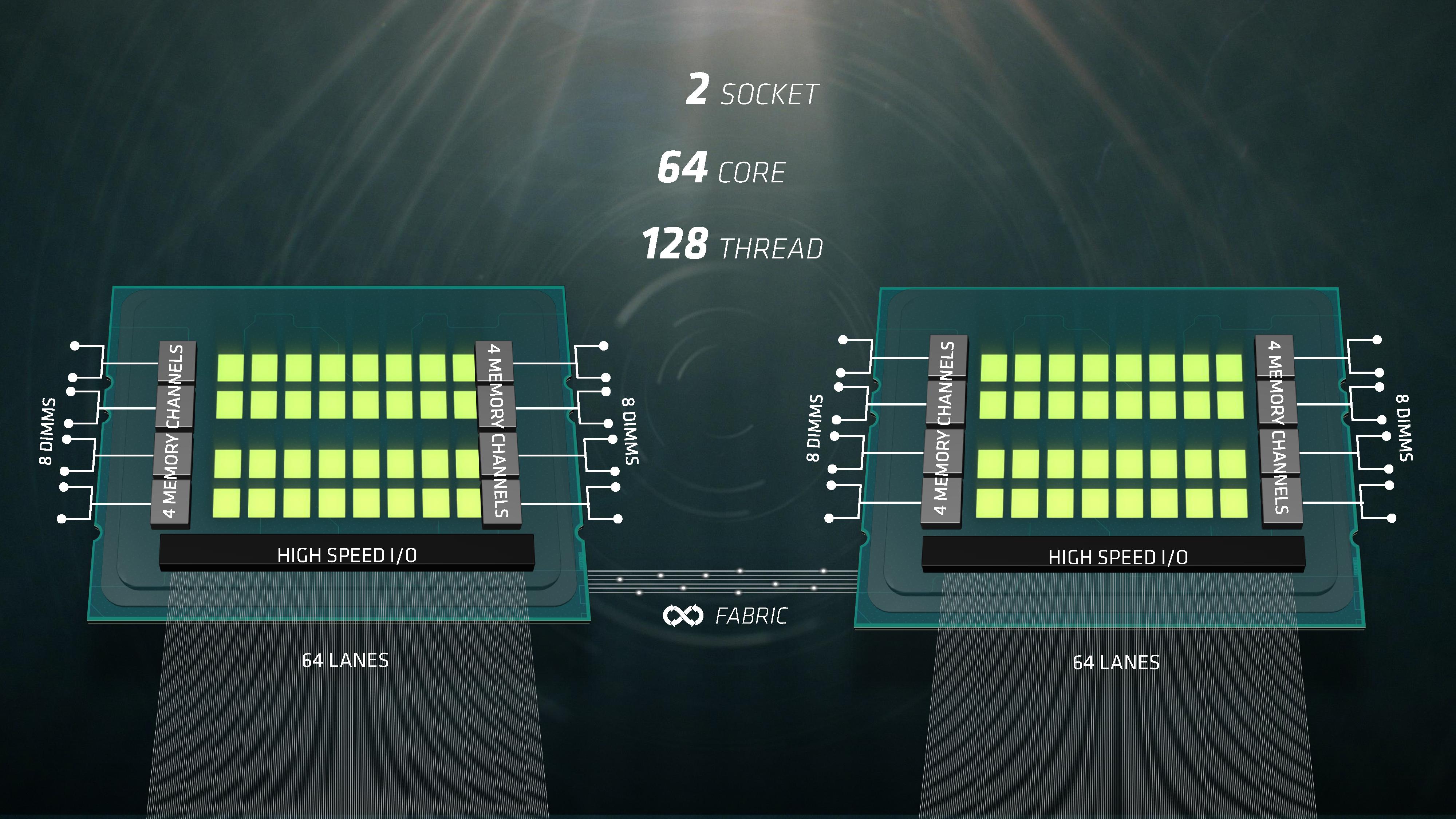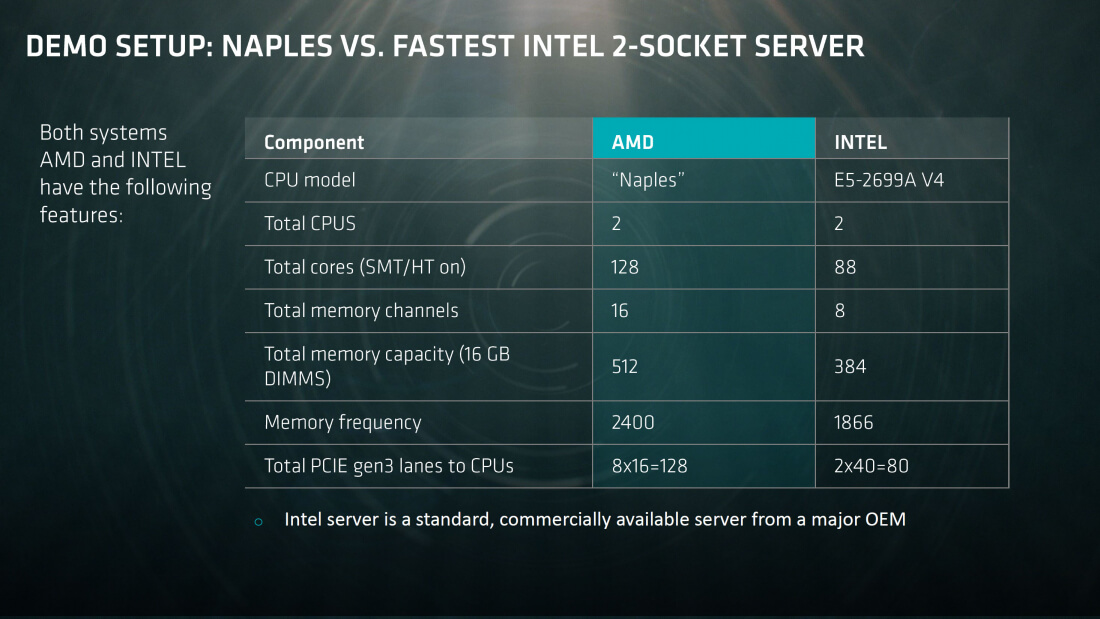
We already know that AMD's Ryzen 7 desktop processors, complete with 8 cores and 16 threads, are powerful and highly competitive with Intel's 8-core parts in workstation and productivity workloads. But AMD's Zen-based server platform, codenamed Naples, is set to blow Ryzen 7's performance out of the water.
AMD's flagship Naples CPU will feature 32 cores and 64 threads, as well as support for eight channels of DDR4 memory with two DIMMs per channel. This Naples CPU will also come with a huge 128 PCIe 3.0 lanes through an integrated I/O controller, removing the need for external PCIe switches or chipsets.
Naples will be available in both single- and dual-socket configurations. In a dual-socket configuration it will be possible to have a system with 64 Zen cores, 128 threads, and 128 PCIe 3.0 lanes. While each Naples CPU will support 128 individual PCIe lanes, in a dual-socket configuration, 64 lanes from each CPU are reserved as a communication bus between the processors through AMD's Infinity Fabric.

With 16 GB DIMMs, it will be possible to kit out a Naples server with 512 GB of DDR4 memory, although AMD states that each Naples CPU supports up to 2 TB of memory (4 TB in a dual-socket system).
Intel's competing Xeon E5 parts top out at 22 cores and 44 threads in a single CPU. With two Xeon E5-2699A v4 CPUs, you can only achieve 88 threads, 8 memory channels, and 80 PCIe lanes in a dual-socket system.


As AMD's solution features more cores and more I/O, it's no surprise that in large data workloads, Naples pulls well ahead of Intel's latest Xeons. AMD has shown a seismic analysis demonstration where a dual-socket Naples solution finished a massive workload in 14 seconds, compared to 35 seconds for a dual Xeon E5-2699A system.
AMD is on track to release Naples products in Q2 2017.
https://www.techspot.com/news/68431-amd-squeezes-32-zen-cores-naples-server-cpus.html